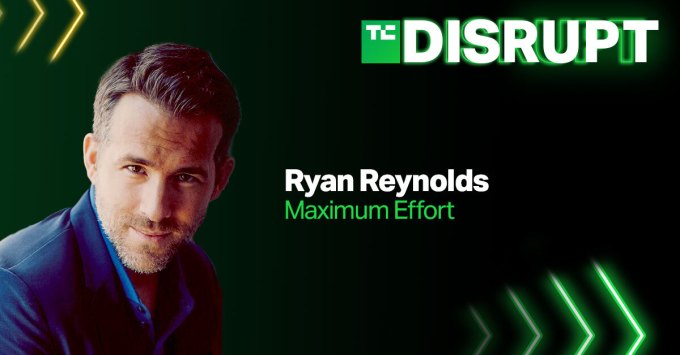| |
| Hello and welcome to Daily Crunch for Friday, August 27, 2021. What a week! In the last 24 hours we've had big news from around the world, including China's latest regulatory push, Apple making modest concessions regarding the App Store and, of course, startup news aplenty. Oh, and Canva CEO Melanie Perkins is coming to Disrupt. — Alex Read More | |  Image Credits: Canva | | |
The TechCrunch Top 3 - China to crack down on algorithms: The push to more closely regulate and control China's domestic technology market continued Friday with a government body announcing a draft set of rules for algorithms. The new rules come as China seeks to limit corporate data collection and more. Irony, of course, is dead.
- Corporations can't get enough startup equity: That's our takeaway from digging into the recent, record results from the corporate venture capital (CVC) world. CVCs are taking part in more, bigger startup funding rounds. We dug into the why and the how of the latest data.
- Apple makes smallest App Store concession: Per a settlement today, TechCrunch reports that Apple will now allow apps to "share information on how to pay for purchases outside of their iOS app or the App Store." Apple called the change a clarification, which was interesting. Apple's grip on the App Store is still tight, but we may be seeing indicators that its hold is slipping modestly.
| |  Image Credits: George / Getty Images | | |
| |
Startups/VC Up top, let's talk about a16z, the venture capital conglomerate. Sure, it has crypto funds and main funds and other funds aplenty. But today the group announced a $400 million capital pool just for seed deals. The fund size indicates that a16z is either expecting to pay lots for seed equity or that it is going to make a host of bets. We'll see. - Rivian files to go public: In case you were looking for yet another EV company to add to your personal investments, good news! Rivian has filed privately to go public! Frankly, we’re excited by this deal; Lordstown this is not. The company recently closed $2.5 billion in external capital, bringing it to more than $10 billion in total. We want to know what all that funding has bought the firm in terms of results.
- Forbes is also going public: Via a SPAC, we should note, but yes, Forbes the media-and-magazine company is taking advantage of the boom in blank-check combinations to take itself public. We dug into its deck to see what the company has coming up and how heavily COVID-19 impacted its results.
- Toast is also going public, but your humble servant failed to get a post up on the matter by the time it was newsletter o'clock. More to come on TechCrunch.com.
- Payroll API startup Zeal raises Series A: The embedded fintech space is busy, and competitive, which makes what Zeal is building rather interesting. Is there a big enough market for just a payroll API product? A few years ago I would have quibbled, but if the OKR startup world has taught me anything, it's to not underestimate how much demand there is in the world for software.
- Sitenna wants to help telcos place 5G antennas: Coming in the next batch of Y Combinator-backed startups, Sitenna is looking for a piece of the capital wave that will push 5G mobile connectivity into our lives. The startup is neat, so read the post, but also keep in mind that demo day for YC is next week, so we're heading into a very heavy news cycle over the next few days.
- Sastrify raises $7M: Based in Cologne, Sastrify wants to help companies buy and manage their SaaS spend. Why does the world need this? Well, now that all software is a subscription fee, not overpaying and generally knowing what one is paying for is a big deal. And big deals plus some founder work equals a startup. Notably, Sastrify is already cash-flow-positive despite its youth.
| | | |
| Many founders must overcome a few emotional hurdles before they’re comfortable pitching a potential investor face-to-face. To alleviate that pressure, Unicorn Capital founder Evan Fisher recommends that entrepreneurs use pre-pitch meetings to build and strengthen relationships before asking for a check: This is the ‘we actually aren't looking for money; we just want to be friends for now’ pitch that gets you on an investor's radar so that when it's time to raise your next round, they'll be far more likely to answer the phone because they actually know who you are. Pre-pitches are good for more than curing the jitters: These conversations help founders get a better sense of how VCs think and sometimes lead to serendipitous outcomes. “Investors are opportunists by necessity,” says Fisher, “so if they like the cut of your business's jib, you never know — the FOMO might start kicking hard.” (Extra Crunch is our membership program, which helps founders and startup teams get ahead. You can sign up here.) Read More | |  Image Credits: Getty Images under a Andrii Yalanskyi license. | | |
Big Tech Inc. - Peloton's bad week: What happens when you have a lackluster earnings report — by Wall Street's standards — and then get "subpoenaed by both the U.S. Department of Justice and Department of Homeland Security"? Well, your share price goes down, and you hope that Monday will wind up much better than how Friday went.
- Tesla wants to sell power: This is a fun one. Per an application, the world learned that Tesla wants to sell power in Texas under the rubric of being a retail electric provider, meaning that it may "purchase wholesale electricity from power generators and sell it to customers," per TechCrunch.
- Twitter tried to bring back the old times: By having its service stutter and go down for folks today. Remember the good old times, when Twitter broke all the time? Personally, I miss the Fail Whale. Twitter, we reckon, does not.
- To close us out, Venky Adivi from Canonical has some thoughts on open source software and the U.S. government. Spoiler: The news is mostly good.
| | | |
TechCrunch Experts: Growth Marketing We're reaching out to startup founders to tell us who they turn to when they want the most up-to-date growth marketing practices. Fill out the survey here. Read one of the testimonials we've received below! Marketer: Natalia Bandach, Hypertry Recommended by: Jean-Noel Saunier, Growth Hacking Course Testimonial: "Natalia is someone with an out-of-the-box approach to growth drivers and experimentation, full of creative solutions and many ideas that she quickly tests through experimentation. Rather than focusing on one area, she tries to verify what makes the most sense to a business and designs experiments that are crucial not only [in the short term] but also [in the long run]. She is an ethical growth manager, likes to know that the business brings real value, and is ready to pivot in every direction, [which] she does fast — however, with a focus on the team’s well-being, professional growth and always avoiding burnout." | |  Image Credits: SEAN GLADWELL / Getty Images | | |
| |
| |
Newest Jobs from Crunchboard | | | | |
| |
| |















